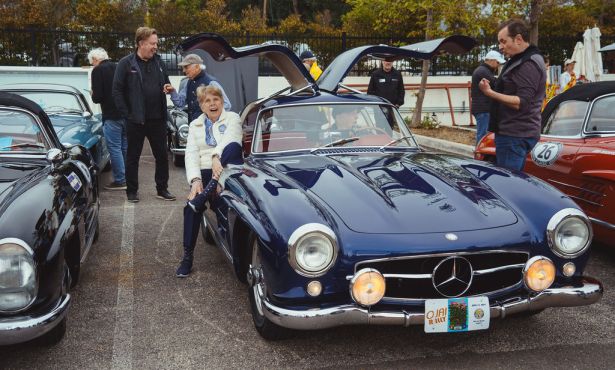Santa Barbara Men’s Conference
Boys 2 Men
When the 2007 installment of the Santa Barbara Men’s Conference commences at Victoria Hall on Friday, the second annual undertaking will focus on the role of initiation and mentoring within modern society. Hosted by two male-oriented social organizations-the ManKind Project of Santa Barbara and Boys to Men Central California Coast-the conference will feature two prominent speakers: Malidoma Some, a West African shaman and author of the books Of Water and the Spirit and Healing Wisdom of Africa, and Aaron Kipnis, who recently penned Angry Young Men: How Parents, Teachers, and Counselors Can Help Bad Boys Become Good Men and is a faculty member the Pacifica Graduate Institute. I recently spoke with Kipnis.
Why do you feel there is a need to put the focus on initiation and mentoring? For some reason, we have really neglected the gender-specific needs of males and interest in education and treatment. The emphasis for the past two or three decades has been on improving conditions for girls and women, which has been an important and necessary endeavor, but, somewhere in that emphasis on one gender, the therapeutic needs of the other gender, and boys in particular, have been somewhat overlooked.
You’ve authored several books dealing specifically with such issues. What’s the inspiration? I, like half the boys in America, grew up in a fatherless home. I was the product of a divorce and I couldn’t help but notice along the way that boys who had a father who showed up at their baseball game or helped them with schoolwork or was there to protect them from the bullies or whatever it was seemed to have somewhat better lives then those of us who lacked fathers. So it was really a personal challenge for me.
How did not having had a father figure impact your social growth? In going to school, almost all of your primary educators are women and there isn’t really an opportunity to learn from them on what it is to become a man. So in my youth, I was trying to learn how to become a man mostly from the women in my life and I think that develops a certain kind of father hunger.
How does that lack of an appropriate role model manifest itself socially? America has become the divorce capital of the world, which means we have an increasing number of boys growing up without a father present. And numerous studies have shown unequivocally that in communities in which there are fewer fathers present, there are higher rates of juvenile crime, teen pregnancy, drug addiction, violence, school dropouts, and youth homicide.
We recently saw a young boy killed in a gang fight on State Street. What are the deeper issues that lead to such an incident? As a psychologist, I understand how powerful that hunger is for young men to have membership in male society. It is essential for most young men to feel like they belong. In the absence of that taking a positive form, gangs become really attractive. So rather than suffer the pain of isolation or the loss of identity, these boys turn to gangs. These are not young men who have no soul or who have no morality or are simply bad kids, but rather it is a reflection of how we as a community fail to provide that inclusion, that sense of recognition, or commitment and caring and support.
Who should be attending the conference? Any men of good will who are concerned about youth related issues and who feel as though they have something to offer. It doesn’t have to be a great asset either, just that they have enjoyed success in whatever endeavors they have taken on in life and are willing to take the time and energy to share a little of their success with a boy who lacks those opportunities. This conference will be talking about how you go about doing that.
4•1•1
The second annual Santa Barbara Men’s Conference is this Friday and Saturday, October 26-27. Call 637-5781 or visit santabarbara.mkp.org.



